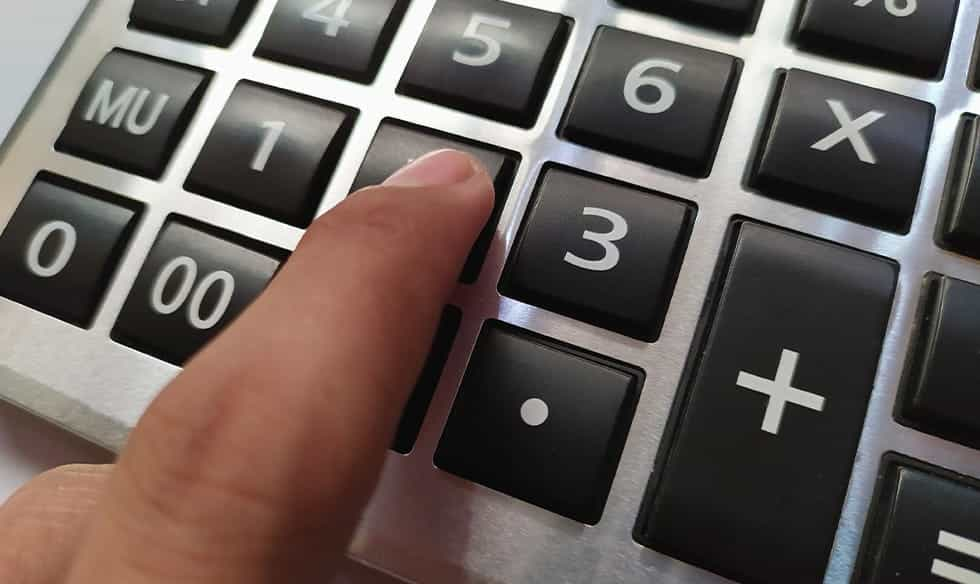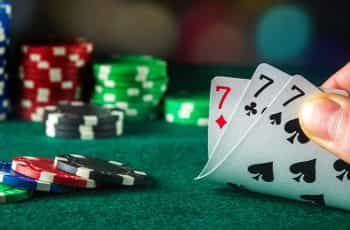
Odds & Probability
Probability is the most important component of gambling, whether it be in online poker, casino poker or any other games. With every single kind of gambling, there must be two or more uncertain outcomes whose likelihoods of occurring can be estimated. In today’s day and age, the most common way of expressing and measuring probability in gambling is through odds. Probability is expressed through percentage.
Strictly put, odds are numerical representations that express probability of a certain outcome. All odds are standardised as a ratio of the number of events that produce that outcome, against the number of events that do not. Odds are not exactly probability, however you can measure the probability from the odds.
Hard Odds: Rolling a Dice
Let’s take a look at an example. Say you wanted to ascertain the probability of the outcome of rolling a one on a six-sided dice. There are six outcomes, five that do not produce the desired outcome, and only one that does. The resulting odds are 1:5. That’s a little different to the expression “one in six”, which would mean the same thing, and the probability, which is 16.67%. This is most relevant in games of craps.
The Human Factor: Flipping a Coin
With a bit of practice, you can capitalize on odds if you are aware of them. If you and a friend are wagering $10 on the flip of a coin, either of the two outcomes of heads or tails are just as likely as the other, making the odds 1:1, and the probability of a desired outcome 50% likely.
You win, and your friend then wagers $20 if it comes up heads as he tries to recoup his loss, while you still wager $10. This makes the statistical odds 1:1, but the odds he has created in the potential payout are 2:1. These created odds are essential in how to work out poker odds, and how to calculate poker equity.
Odds in Poker
Poker probability is a whole science unto itself. There are a couple of different kinds of odds and calculations players can utilize at a poker table, in order to gain the upper hand on their opponents by anticipating what will come next. These are called pot odds and hand odds. You can use these two odds together to know the value of your hand and whether it is worthwhile to call and go in on a high-valued hand.
Hand Odds
Whenever you get dealt a hand in poker, that hand has a value. We all know this. A pair of 5s in your hand has a higher value than another hand with four hearts but no pair or other combination. The value of the hand can improve however, if a card with a heart appears, creating a flush. Hand odds are the probability of a combination of greater value appearing from future dealt cards.
To calculate the hand odds of a specific combination appearing in deals (the odds change after the flop, turn and river) you need two things: a combination which to aim for, and the number of “outs” left in the deck. An out is the desired cards left to deal in the deck which can provide you the hand you are seeking.
In order to calculate the hand odds, you work out the ratio of the number of outs left in the deck against the number of losing cards left to deal. This leaves you with a ratio – or odds – indicating the probability of the desired card appearing.
Let’s continue the example of calculating the odds of getting a flush. If the turn has been dealt, and you have four hearts on the table and in your hand, you only need one more heart card to get a flush. There are 37 losing cards left in the deck, and 9 more heart cards which can complete the flush. That makes a ratio of 37:9, simplified to 4:1, or a 25% chance that a heart will appear in the river.
But it’s also important to note that the chances of drawing a specific card diminish with the turn. Here’s a handy shortcut to get rough odds: multiply the number of outs by 4 to get your hand odds for the turn; and multiply by 2 for the river.
Pot Odds
When playing poker, each wager placed creates a calculation similar to the simplified version in the coin flipping example above. A player makes a bet which changes the pot amount, that is, the amount that you can be expected to win if you call their bet, and continue to play.
These calculations are represented as pot odds, and put simply, they are the ratio of the amount sitting in the pot, compared with the amount you must wager in order to call and continue play. They are essentially a measure of how much you need to win in order to break even.
Let’s continue the flush example. You’re waiting on one more heart to appear after the river has been dealt. Your opponent has bet $10, bringing the total pot to $100. You only need to call $10 to continue the hand into the river and see if that last card is a heart. Here’s how to work out the pot odds:
- You only need to call $10, adding to a $100 pot.
- Convert the dollar amount into a ratio, 100:10.
- Simplify the ratio into the lowest amount possible, 10:1.
- This indicates that you can win 10 times your bet by continuing to the river.
It’s important to note that the pot odds are continually changing, and that the specific pot odds calculation is estimated for that specific bet. You already have put a bit of money into the pot earlier in the hand by continuing up to that point, so some of that pot money is not profit.
Pot Equity
Hand odds can also be extrapolated to a percentage and then to a dollar amount to find the pot equity. Pot equity refers to the chance of success you’ll have at winning a hand at any given time of the hand. It is the amount that might belong to you should you win.
In the flush example, with a 4:1 hand odds to obtain a flush at the river, that would give you a 25% chance that you’ll have the strongest hand to win the $100 pot. 25% of $100 is $25, meaning that your pot equity at that point in time is $25.
Combining Hand Odds and Pot Odds
So you’ve got a 4:1 chance to get a flush and likely win, but 10:1 pot odds are offered should you call your opponents bet on the river. The real odds, 4:1, are much better than the pot odds, so it’s a no brainer that the reward is worth the risk.
All this mathematics can be a little unwieldy and tricky to use in a poker situation. If you’re playing at a real table, keep in mind the 4 and 2 rule of outs to figure out your hand odds. If you’re playing online, you can use a calculator and some great online poker strategy to crunch the numbers from the comfort of your chair.
Frequently Asked Questions
This can be a very complicated subject, but it can be broken down and approached simply, with the right tools. We nevertheless get a lot of questions on the topic, and we’ve collated and answered the most common ones for you below. While you’re here, check out all our other great guides.
What are poker odds?
Poker odds, or hand odds, are the mathematical chances of getting a desired hand and likely winning a pot in poker. Combined with pot equity and pot odds, it’s a good indication of how you stack up in a poker hand. You can find odd calculations and other strategies on our online poker strategies page.
What are pot odds and poker outs?
Pot odds refer to the cost of calling a bet against the size of the pot and the potential reward. Poker outs are the winning cards you can use to complete a hand left in the deck to be dealt. Try out your newfound knowledge at any of our recommended online poker operators.
Why should I use a poker odds calculator?
Besides being much easier than crunching the numbers yourself, poker odds calculators are fast and accurate, and allow you to make more effective decisions based on the probability of winning the hand and the risk/reward of going in on a hand, much in the same way mathematical formulas can be employed to play blackjack.
How do poker odds calculators work?
Poker odds calculators use tried and tested mathematical formulas to crunch the numbers and work out the probability of landing on certain hands. You can combine these easily accessible calculators with the best apps in order to play online poker to your best and fullest potential wherever you are.



